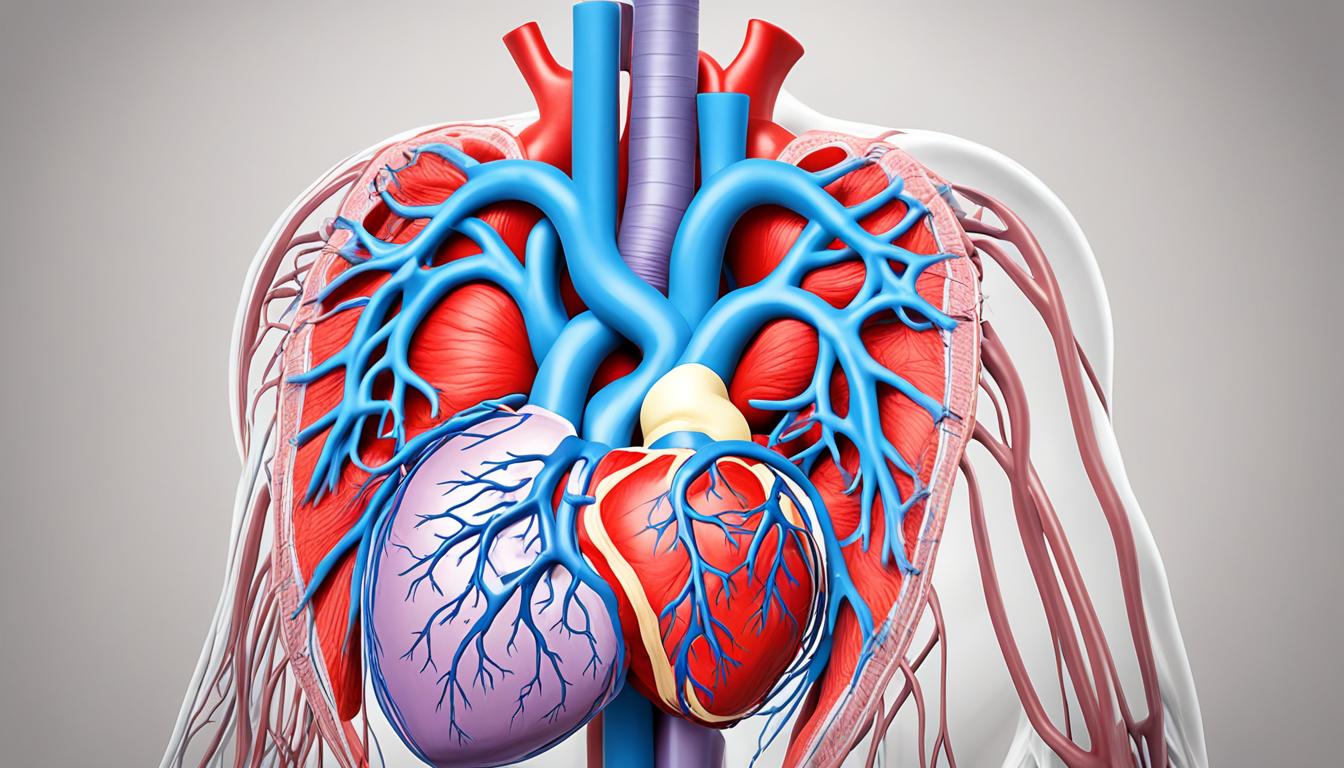Left ventricular hypertrophy (LVH) means the walls of the heart’s main pumping chamber become thick. This can make the heart muscle stiff, affecting its ability to pump blood well. High blood pressure that’s not controlled is the main reason for LVH. Yet, there are other causes like aortic valve narrowing, intense exercise, and certain genetic conditions. Signs of LVH might be trouble breathing, leg swelling, chest pain, heart palpitations, and fainting.
Doctors use tests like electrocardiogram (ECG), echocardiogram, and heart MRI to spot LVH. An ECG checks the heart’s electrical signals, showing if the muscle is thicker than normal. Echocardiograms and heart MRIs create pictures of the heart. They help doctors see if there are issues with the heart muscle, blood flow, or heart valves.
Treatment for LVH focuses on the cause. Doctors often use medicines to ease symptoms and prevent problems. These can include ACE inhibitors, ARBs, beta blockers, calcium channel blockers, and diuretics. Sometimes, surgery or different procedures are needed. Stem cell therapy is also being looked at as a treatment. This is especially true for cases where usual treatments don’t work well.
Key Takeaways:
- LVH comes from the left ventricle’s walls getting thicker, making it harder for the heart to pump blood well.
- The main cause is uncontrolled high blood pressure, but it can also happen due to valve issues, intense exercise, or certain genetic diseases.
- Signs of LVH include trouble breathing, leg swelling, chest pains, heart fluttering, and fainting.
- To find out if someone has LVH, doctors may do tests like ECG, echocardiogram, and heart MRI.
- Treating LVH depends on the cause and can involve medicines, surgery, or stem cell therapy for some patients.
Diagnosis of Left Ventricular Hypertrophy
To diagnose left ventricular hypertrophy (LVH), doctors follow several steps. This includes a checkup, symptom review, and imaging tests. All these steps help find out if someone has LVH. They also show how severe it is and what’s causing it.
At a checkup, your doctor will carefully examine you. They’ll measure your blood pressure and listen to your heart with a stethoscope. They’ll ask about your symptoms and family history to spot any signs of LVH risks.
An electrocardiogram (ECG) is a key test for LVH. It checks the heart’s electrical activity. An ECG can pick up on certain patterns that signal a thickened heart muscle, a key LVH sign.
Also important is an echocardiogram. This test uses sound waves to make heart images. It shows how blood is flowing, measures heart muscle thickness, and checks the heart valves for any problems.
For more detailed images, a heart MRI is another option. It uses magnets and radio waves to create pictures of the heart. This test offers a deeper look into the heart’s structure and how well it’s working. It helps doctors understand LVH better and see if there are any other heart issues.
| Imaging Tests for LVH Diagnosis | Benefits |
|---|---|
| Electrocardiogram (ECG) | Identifies patterns suggesting thickened heart muscle tissue |
| Echocardiogram | Visualizes blood flow, assesses heart muscle thickness, and detects valve problems |
| Heart MRI | Provides detailed images of the heart for comprehensive assessment |
All these tests together confirm LVH. They help doctors make a treatment plan that’s right for the patient.
Treatment Options for Left Ventricular Hypertrophy
Left ventricular hypertrophy (LVH) treatment depends on what’s causing it. The main goals are to handle symptoms, avoid problems, and boost heart health. Doctors use medicine and sometimes surgery to treat LVH.
Medications for LVH
Doctors often prescribe drugs to control LVH symptoms and slow its progress. These may include:
- Angiotensin-Converting Enzyme (ACE) Inhibitors: They relax blood vessels and lower blood pressure. This eases the heart’s job and reduces its thickness.
- Beta Blockers: They block adrenaline’s heart effects. This lowers the heart rate and blood pressure, easing the heart’s workload.
- Angiotensin II Receptor Blockers (ARBs): They decrease blood pressure and heart strain by blocking angiotensin II’s effects.
- Calcium Channel Blockers: These widen blood vessels and improve blood flow, reducing heart strain. They also lower blood pressure.
- Diuretics: Diuretics cut extra fluid, easing lung and tissue swelling. This reduces breath shortness and swelling.
Surgical Interventions
Sometimes surgery or procedures are needed. Here are a few examples:
| Underlying Cause | Treatment Options |
|---|---|
| Aortic valve stenosis | Catheter procedure or surgery to repair or replace the valve |
| Hypertrophic cardiomyopathy | Surgery to treat heart failure symptoms or clear heart blockages |
| Amyloidosis | Stem cell transplant if other methods fail |
These operations target LVH’s root causes. They aim to better the heart’s function and reduce symptoms.
It’s key that a person’s LVH treatment is made to fit their situation and health history. A doctor will study the cause, symptoms, and other factors to pick the best treatments.
Conclusion
Left ventricular hypertrophy (LVH) means the heart’s left pumping chamber walls thicken. It’s mainly due to high blood pressure. But, it can also come from other things like aortic valve stenosis. Even intense sports or some genetic conditions can lead to it.
Diagnosing LVH needs a physical check, tests for symptoms, and heart images. Tests like an electrocardiogram (ECG), echocardiogram, and heart MRI are used. They help doctors see if the heart muscle is too thick and find out why.
When treating LVH, the method depends on what’s causing it. Doctors might give medicines to ease symptoms and decrease heart muscle thickness. But sometimes, surgery or other treatments are necessary. It’s crucial to manage conditions like high blood pressure to stop LVH from getting worse or happening in the first place. Health checks, eating well, keeping fit, and reducing stress play a big part in keeping your heart healthy.

